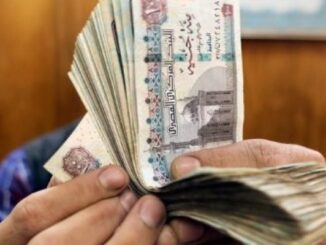
The Finance Minister Amr El Garhy and the Governor of the Central Bank of Egypt (CBE)Tarek Amer are currently in Washington, DC, for a round of talks with senior executives of the IMF on the $12 bn loan extended fund facility, an official said according to Al-Masry al-Youm. The meeting will likely focus on the $5-6 bn funding from “friends and allies” that the IMF has asked Egypt to line up as a condition of the facility.
Amer reportedly traveled there following negotiations with the UAE government that secured a six-year $1 bn deposit, the sources added. The Egyptian officials are also expected to promote the upcoming $3 bn euro bond issuance. The trip has not been officially announced.
The trip comes amid reports that the central bank held talks with Saudi Arabia for a $2 bn deposit that could arrive before the end of the year, government sources told Al-Borsa News. The deposit was promised by Saudi Arabia during King Salman’s latest visit to Cairo in April. The negotiations will determine the time frame of the deposit, the annual interest, as well as whether it will be made in one or two tranches, the source added. Egypt needs to secure $6 bn in funding separate from the $12 bn extended fund facility from the International Monetary Fund as a condition of the IMF package.
In fact, the IMF loan would be the latest in a series of loans obtained by Egypt’s government since al-Sisi reached power in a military coup in 2013. However, the loan agreement specified some required economic reforms, including the adoption of a Value Added Tax (VAT), a measure currently being debated in parliament.
While the government claims that adopting the VAT will reduce the deficit by increasing tax revenue, the public opinion is worried that a new tax system will add another financial burden on the Egyptians who are already suffering due to the country’s current economic crisis.
The VAT tax works on taxing businesses at each stage of production on the value added each time a commodity changes hands as it goes up the chain from a raw material to a consumer product. As a commodity moves up through the supply chain, each business has to pay taxes to the state. The same principle applies to imported goods, which are taxed when they arrive in the country and each time they change hands after that.
The new tax also covers services, which are usually defined as any economic transaction in which a physical commodity doesn’t change hands — hotel stays, doctor visits, concert and train tickets, phone and internet service, education, financial and legal advice. The same rules apply when it comes to taxing added value for services, although supply chains for services are usually less complex than for manufactured goods.
Egypt’s economy has been suffering one of its biggest economic crises in its history. As a result, Egypt seeks the IMF loan agreement and its series of economic reforms including the value-added taxation, cutting electricity subsidies and curbing wage increases. Moreover, economists expect the central bank to devalue the local currency or adopt a flexible exchange rate system aiming to attract investments that will bolster reserves.



